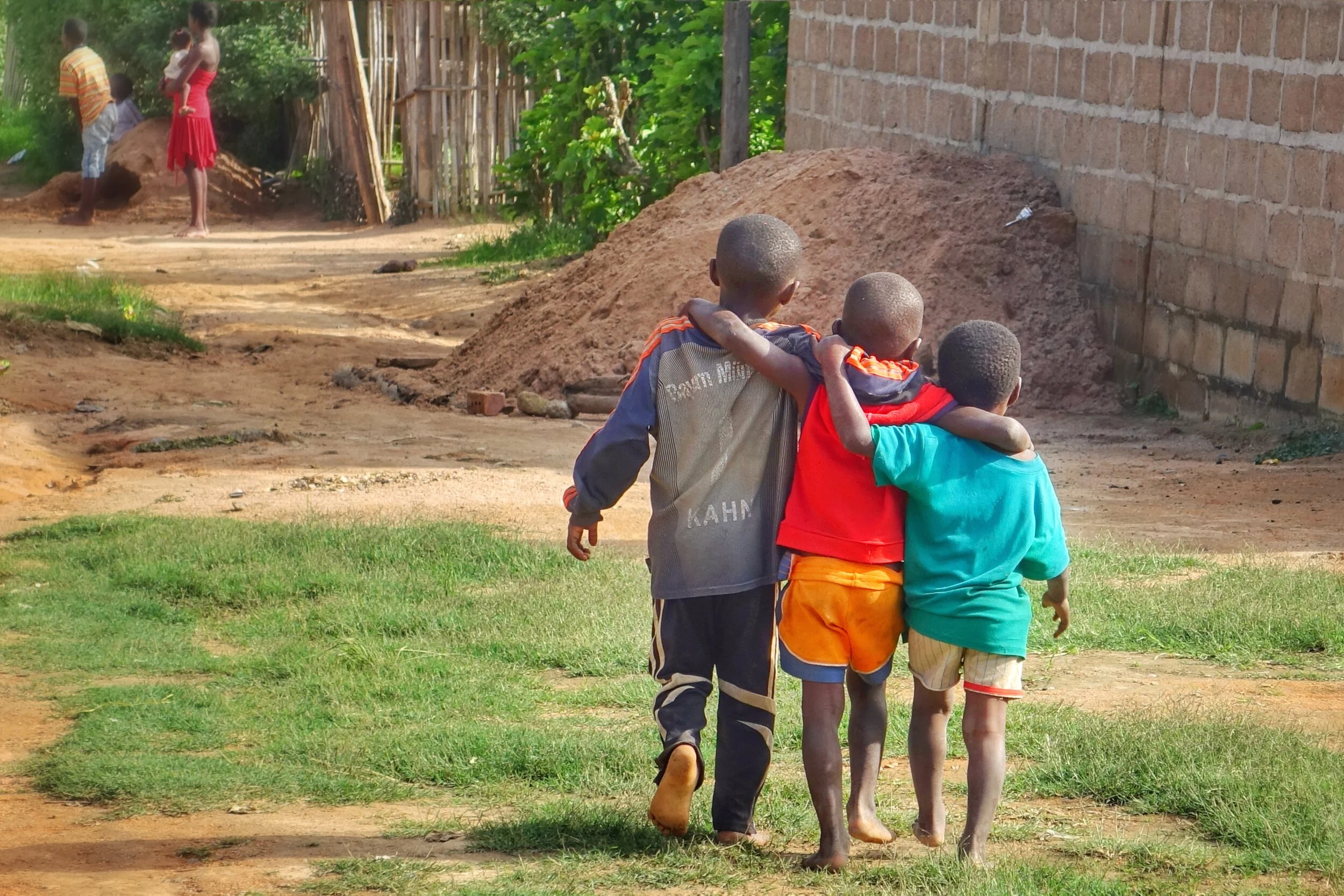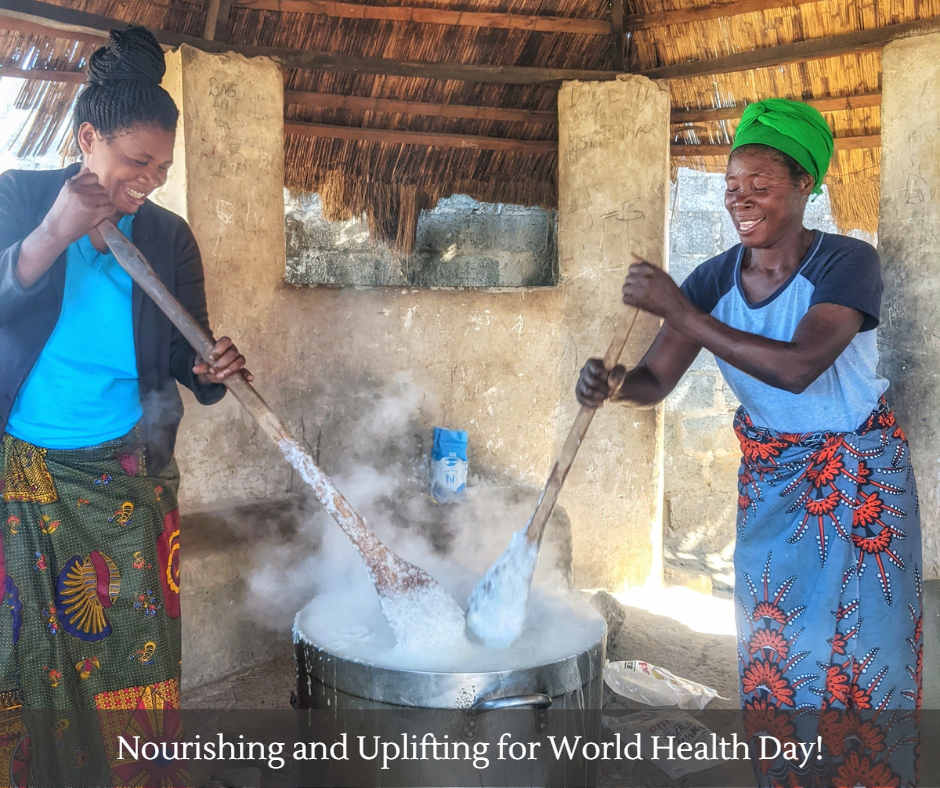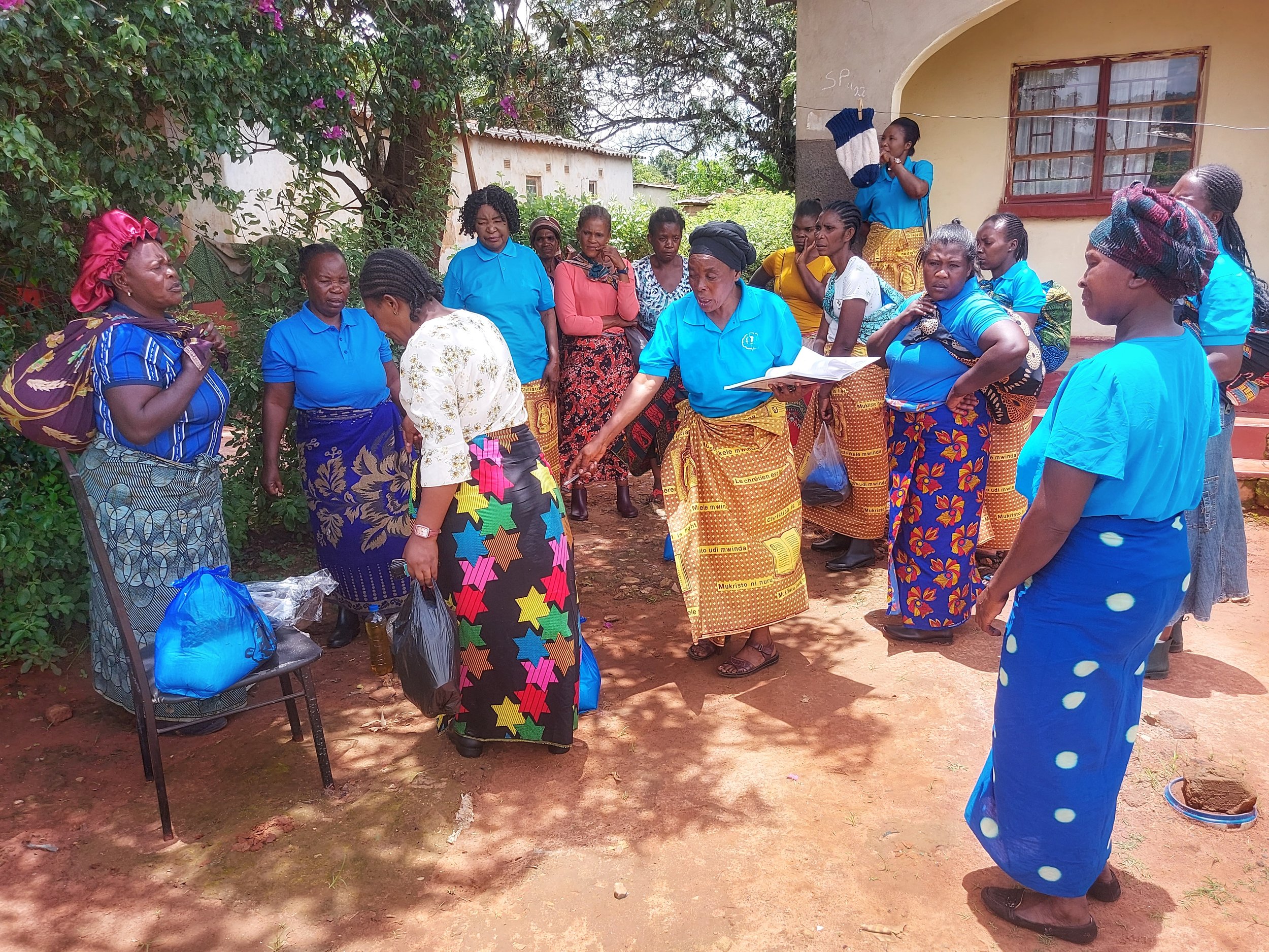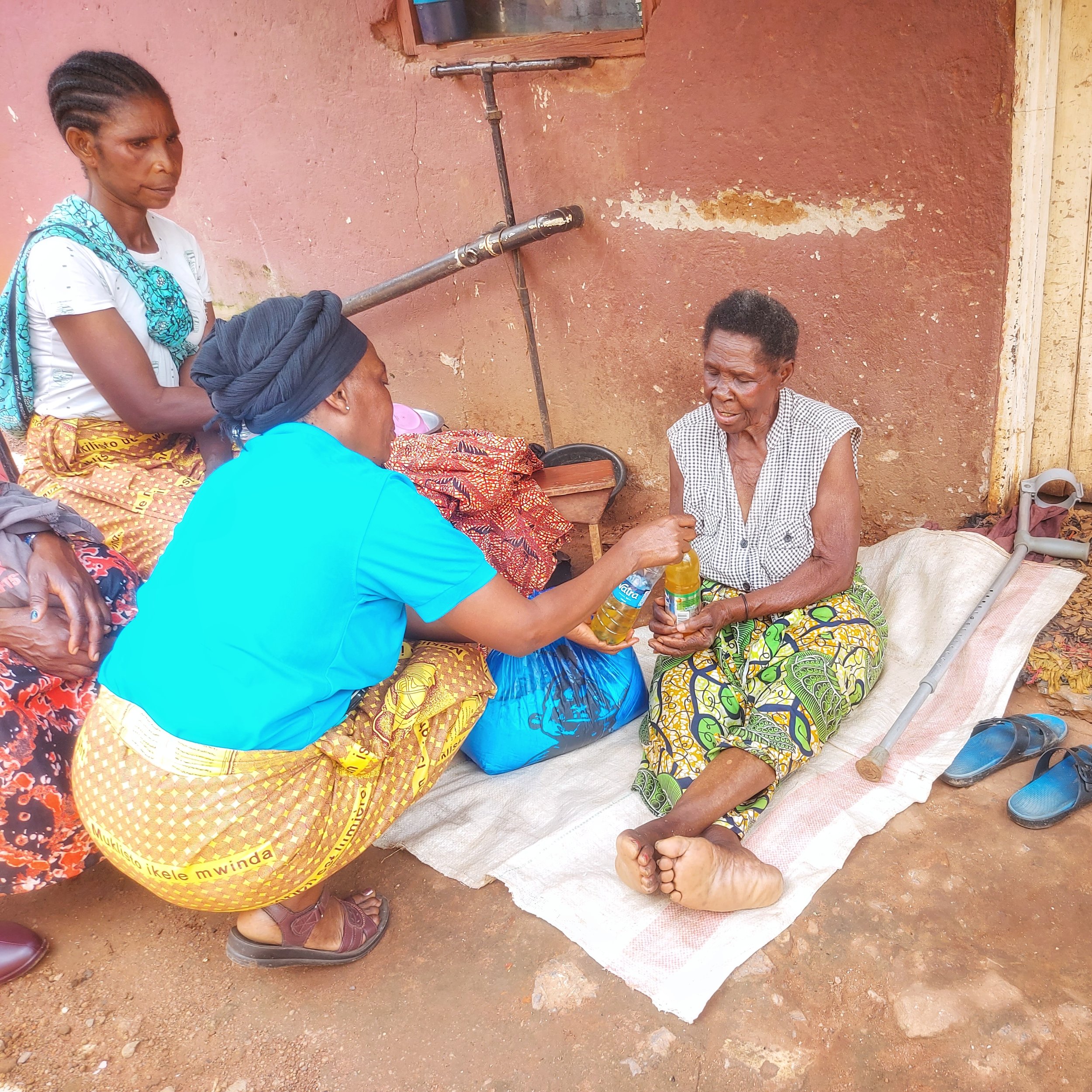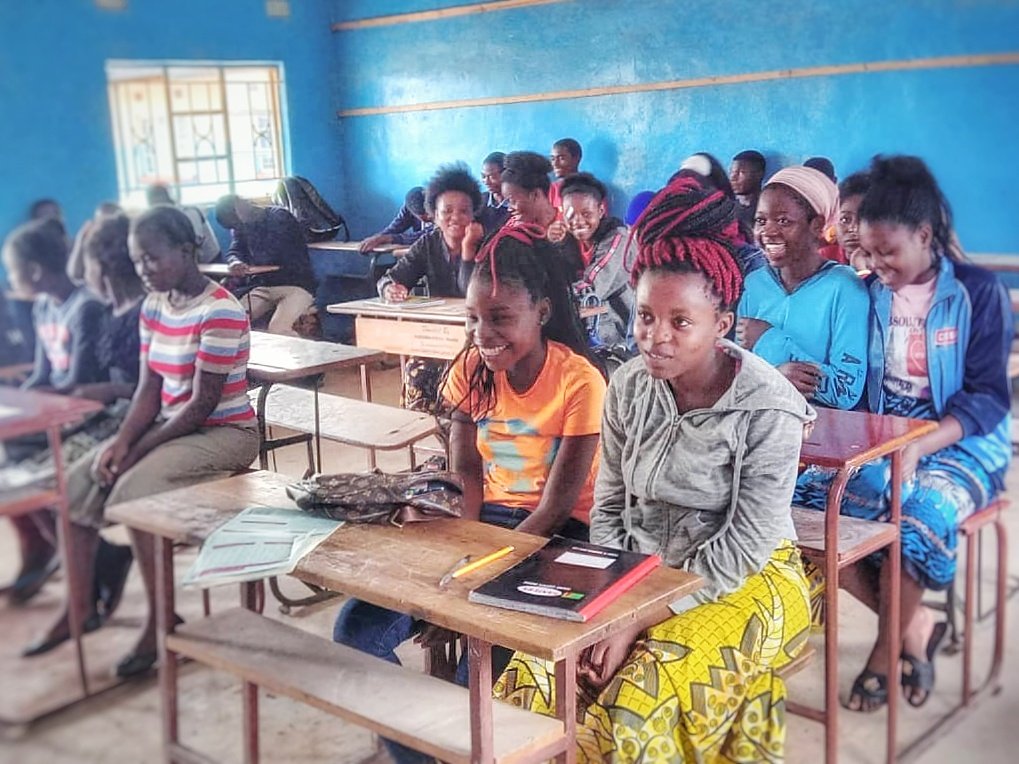Luapula Kafwa Coordinator, Jane Chibwe, has planted her roots deep in her community. As leader of a trusted and respected group of women and men, Jane has shown her skill in community development, utilizing teamwork to build the Mulundu Community Center! Now that the center itself has been built, new projects are underway at the site, and community members of all ages continue to be passionately involved as vast gardens, latrines, water projects, and a soccer field take shape!
In order to make room for the soccer field so local children could organize teams, plant roots and stumps needed to be removed so the land could be flattened as much as possible. Community volunteers cleared the field by hand (no small task!). After removing the roots, it would have been simple to push them to the side, forgotten on the property. But Jane and her team saw an opportunity to make this useful, and turned the stumps into charcoal! Charcoal is used in the village daily for cooking, using a small brazier. Now they can keep this charcoal for use at the center, cooking porridge for the children who come for educational programs, and for mothers and families who visit the center for health programs to take home if they need it. We’re thankful to partner with leaders who show such resourcefulness and compassion for their community!

